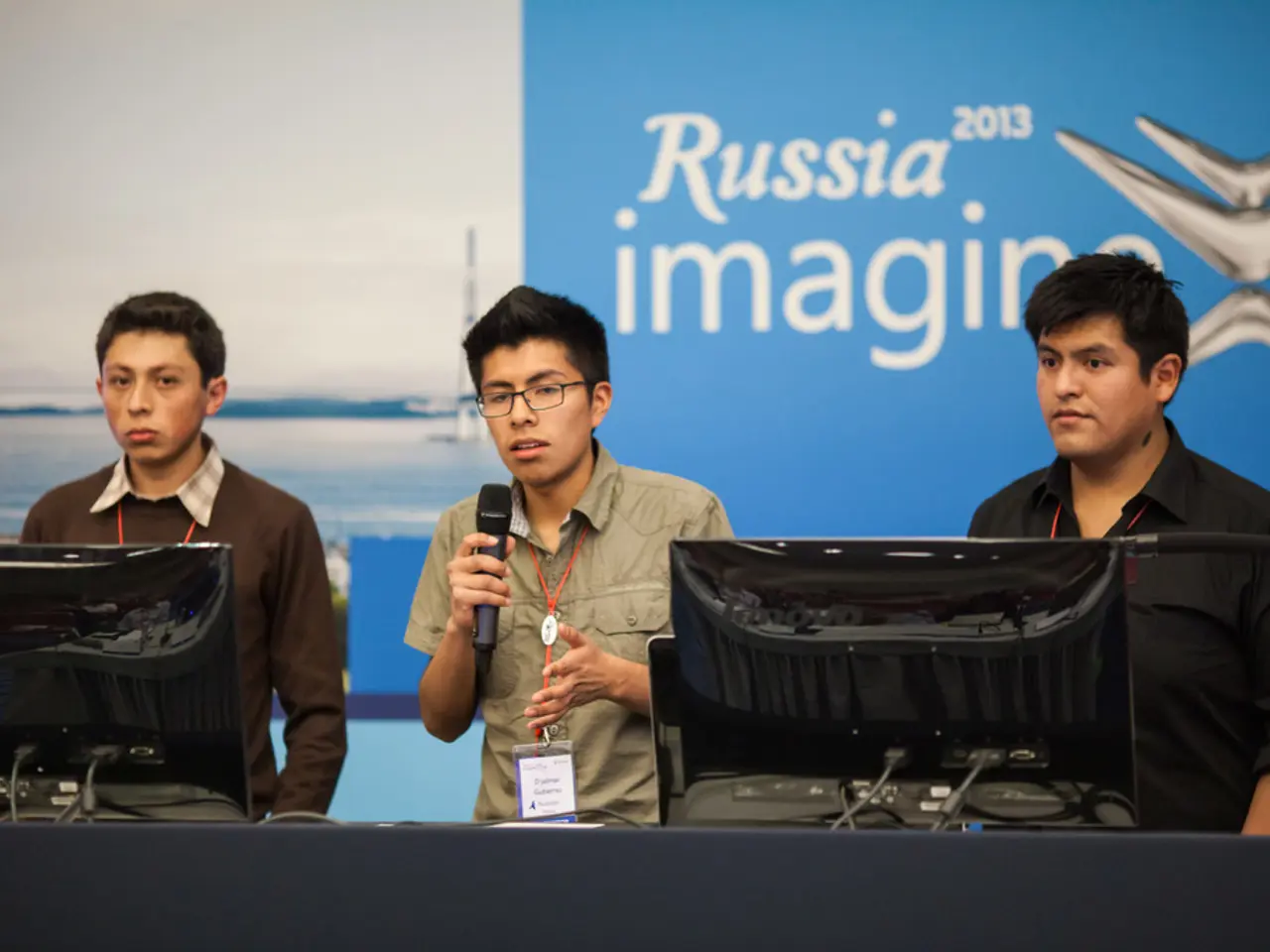Donald Trump reveals plans for a face-to-face meeting with Vladimir Putin in Alaska on the following Friday, aiming to negotiate an end to the Ukraine conflict.
Next month, Russian President Vladimir Putin is set to visit China, but the focus of international attention remains on the upcoming meeting between Putin and President Donald Trump in Alaska. This meeting, scheduled for next Friday, will be the first U.S.-Russia summit since 2021.
The announcement of the meeting broke expectations that it would take place in a third country, giving Putin a degree of validation after the U.S. and its allies had sought to make him a pariah over his war against Ukraine. The Institute for the Study of War, a Washington think tank, has stated that "Putin remains uninterested in ending his war and is attempting to extract bilateral concessions from the United States without meaningfully engaging in a peace process."
The current conditions for peace between Russia and Ukraine remain highly unfavourable and rigid. Russia insists on maximalist demands that Ukraine fully capitulates, conceding large territories, demilitarizing, "denazifying" its government, and adopting neutrality, especially abandoning NATO aspirations. Ukraine and the West reject these terms and insist on a full ceasefire as a precondition for peace talks. The Kremlin has not shown willingness to compromise or consider territorial concessions ahead of the planned summit.
Ukrainian forces are locked in intense battles along a 1,000-kilometer front line and have significant manpower shortages. Ukrainian officials warn that Putin has so far avoided meaningful ceasefire commitments and may use any pause as a chance to regroup for further offensives. The summit is unlikely to produce a breakthrough unless Russia softens its maximalist positions.
India's Prime Minister Narendra Modi had a call with Putin to discuss the latest Ukraine developments, while Putin also had phone conversations with the leaders of South Africa, Kazakhstan, Uzbekistan, and Belarus. Putin had a phone call with Chinese leader Xi Jinping, during which he informed Xi about the results of his meeting earlier this week with Trump envoy Steve Witkoff. Xi expressed support for the settlement of the Ukrainian crisis on a long-term basis.
Trump's announcement also came with the news of an additional 25% tariff on India for its purchases of Russian oil. Trump suggested that any agreement would likely involve "some swapping of territories," but no details were provided.
The cautious skepticism towards the meeting is shared by Ukraine and observers. While the summit presents a diplomatic opportunity, Ukrainian officials warn against mistaking apparent negotiation progress for real peace, highlighting the risks that concessions could simply benefit the Kremlin strategically. Analysts emphasize that a ceasefire agreement would need robust security guarantees to deter renewed Russian aggression, ideally including reciprocal constraints on both sides.
References:
[1] "Putin's maximalist demands remain unchanged as Trump-Putin summit approaches." The Washington Post. [Link]
[2] "Ukraine braces for Trump-Putin summit, warning against false peace." Reuters. [Link]
[3] "Any ceasefire agreement in Ukraine would need robust security guarantees, analysts say." The New York Times. [Link]
- The upcoming Trump-Putin summit in Alaska is being closely scrutinized against the backdrop of ongoing war-and-conflicts, particularly in Ukraine, where the focus lies on the intransigence of Putin's maximalist demands, as reported by The Washington Post.
- Amid the ongoing politics surrounding the war-and-conflicts in Ukraine, news outlets such as Reuters have highlighted Ukrainian concerns that any potential agreements from the Trump-Putin summit might merely serve Russian strategic interests, rather than promoting genuine peace.








